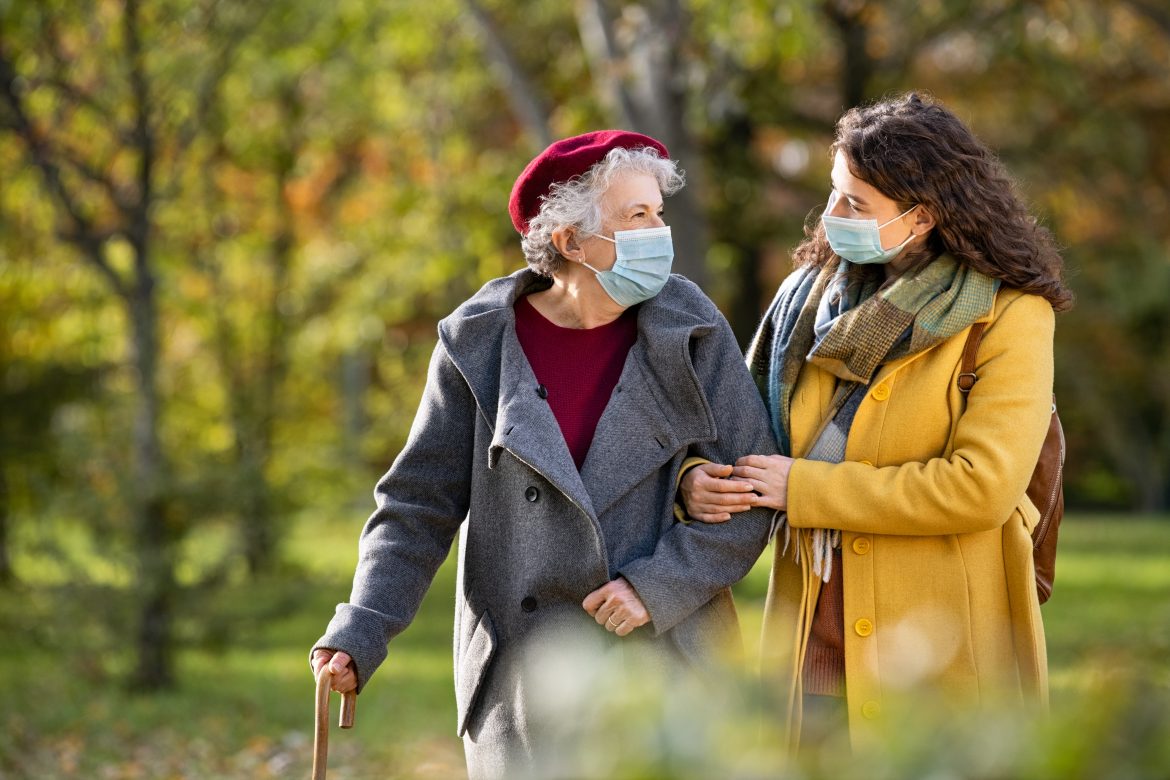
How to reduce the risk of visiting elderly people COVID-19
COVID-19 protection for yourself and others
Stay safe if COVID-19 is spreading in your community by taking simple precautions including physical separation, wearing a mask, keeping rooms well aired, avoiding crowds, wiping your hands, and coughing into a bent elbow or tissue. Consider local recommendations in your location of residence and work. Do everything you can to stop the spread!
What can you and others do to defend themselves from COVID-19?
- Maintain at least 1-meter space between yourself and others to lower your chance of infection when they cough, sneeze or speak. Keep a greater distance from yourself and others when you are indoors. The farther you go, the better.
- Make wearing a mask a natural part of your routine about going out in public. Masks must be used, stored, cleaned and properly removed in order to be as effective as possible.
Here are a few foundations about how to use a mask:
- Clean your hands before putting on your mask, as well as before and after removing it, and after touching it at any time.
- Make sure the nose, lips, and chin are covered by it.
- When you remove a mask, place it in a clean plastic bag and wash it every day if it is a fabric mask, or dispose of a medical mask in a trash can.
How to Make Your Environment More Secure
- Avoid the 3Cs: closed, crowded, or close touch.
Outbreaks have been observed in restaurants, choir practices, fitness classes, nightclubs, offices, and places of worship where people met, frequently in crowded indoor settings where they talked loudly, shouted, breathed deeply, or sang.
COVID-19 transmission risks are increased in crowded, poorly ventilated areas where infected people spend long periods of time together in close proximity. Because the virus appears to spread more efficiently through respiratory droplets or aerosols in these circumstances, taking measures is even more critical.
- Meet up with people outside. Outdoor gatherings are safer than indoor gatherings, especially if the inside space is confined and there is no outside air coming in.
If possible, avoid crowded or indoor surroundings, but take the following precautions:
Open your window. Indoors, boost naturally occurring ventilation.
Q&As about ventilation and air conditioning have been issued by WHO for both the general public and those who manage public spaces and buildings.
Put on a mask.
Don’t overlook the basics of excellent hygiene.
- Hands should be thoroughly cleaned on a regular basis using an alcohol-based hand massage or washed with soap and water. This kills any bacteria or viruses that may be on your hands.
- Keep your eyes, nose, and mouth out of your hands. Many surfaces are in contact with hands and viruses can be recovered. Once contaminated, your hands can spread the infection to your eyes, nose, and mouth.
- Take your mouth and nose with the plied elbow or tissue as you cough or sneeze. Then, quickly place the used tissue in a closed bin and wash your hands. By practicing good respiratory hygiene,’ you can protect those around you from viruses that cause colds, flu, and COVID-19.
- Surfaces that are frequently handled, such as doorknobs, faucets, and phone screens, should be cleaned and disinfected on a regular basis.
What to do if you feel unwell
Learn about the complete range of COVID-19 symptoms. The most prevalent symptoms of COVID-19 are fever, dry cough and fatigue. Other symptoms that may affect some people but are less prevalent include loss of taste or smell, aches, and pains, headache, sore throat, nasal congestion, red eyes, diarrhea, or a skin rash.
If you have even the slightest symptom avoid visit elderly people or visit age care facilities even if you took all the measures mentioned above.
Even if you have minor symptoms such as a cough, headache, or a mild fever, you should stay at home and isolate yourself until you recover. Make arrangements for someone to bring you supplies. Wear a medical mask if you need to leave the house or have someone with you to avoid infecting others.
Seek medical assistance right away if you have a fever, cough, or difficulty breathing. If possible, call first and then follow the instructions of your local health authorities.
Keep up to speed on the most recent information from reputable sources, such as the World Health Organization or your local and national health authorities. Local and national governments, as well as public health agencies, are best situated to advise residents in your area on how to protect themselves.
Conclusion
An active and healthy lifestyle is essential for people of all ages. However, as you age, your body gradually loses strength and your immune system weakens, making you more susceptible to infections and injuries. Maintaining a healthy and active lifestyle becomes even more crucial if you are above the age of 60.